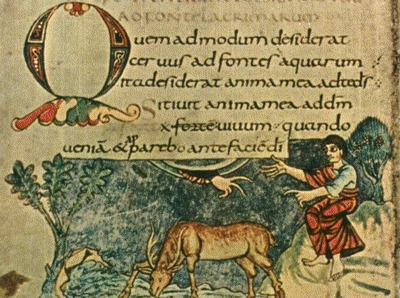

|
| |||||||||||||||||||||||||||||||||||||||||||||||||||||||||||
|
|||||||||||||||||||||||||||||||||||||||||||||||||||||||||||
|
| |||||||||||||||||||||||||||||||||||||||||||||||||||||||||||

about the greek alphabetThe Greek alphabet has given rise to many other alphabets used in Europe and the Middle East, including the Latin alphabet. It is used for writing modern Greek today. In addition, its letters are employed as symbols in mathematics and engineering, as particle names in physics, as the names of stars, in the names of fraternities and sororities, in the naming of certain tropical cyclones, and for other purposes. the nature and history of the greek alphabetAs used today, the Greek alphabet is a set of twenty-four letters. In earlier forms, these and a few other Greek letters not still part of the alphabet have been employed to write the Greek language since the late 9th or early 8th century BCE.Alphabets spawned or influenced by the Greek alphabet include: Latin, Gothic, Glaolitic and Cyrillic (Slavic), Armenian (possibly), and Georgian. Prior to the emergence of the old Greek alphabet, from which today's Greek alphabet is descended, the Greeks employed a different writing system based on a system called Linear B, an ancient Minoan writing system which had evolved from a predecessor called Linear A. Linear A was the writing system used by Mycenaean culture prior to circa 1200 BCE. But Linear B posed problems for the Greeks. It was an alphabet developed to facilitate the language and writing system of Minos, not the language and writing of ancient Greece. Because the two languages were so different from each other, Linear B could not readily be transliterated to Greek; that is, the letters, words, and sounds of Linear B had no direct correspondences with Greek counterparts. (As an example of a transliteration, consider the direct correspondence between the Greek letter X, and the modern English digraph, ch, or the trigraph, chi. theysound alike.) As a result of problems like these, the ancient Greek alphabet based on Linear B was gradually replaced after the downfall of Mycenae in 1200 BCE, when the Mycenaean culture vanished. By 800 BCE, a new Greek alphabet resembling today's Greek alphabet appeared that was based on the Phoenician alphabet. This replacement alphabet is the one from which the modern Greek alphabet is derived. The Greek alphabet is the first and oldest alphabet to denote each vowel and consonant with a separate symbol. This important property allows it to phonetically and accurately represent Greek speech. The letters of the Greek alphabet were also used to represent Greek numerals beginning in the 2nd century BCE. Early Greek was written like Semitic, from right to left. This practice gradually changed to its opposite. After 500 BCE Greek was always written left to right. In the Classical period, the alphabet contained only capital letters, which made it ideal for carving monuments and inscriptions. From this version, three scripts evolved that rendered it better suited for handwriting with pen on paper, including printed and cursive letters.
See the letters of the greek alphabetYou may want to explore the letters of the Greek alphabet if you are a member or a fraternity or sorority, planning to travel in Greece, or studying the Greek language. If you are studying astronomy, physics, math, or engineering, you probably will want to learn this alphabet by heart and later to refresh your memory by accessing it again.
Download your personal copy of the greek alphabetDownload a copy of the Greek alphabet for your personal use or for someone else. Keep it handy on your computer for future reference or print a copy and carry it with you. It runs on any personal computer, PDA, cell phone, or on any device that supports the Adobe Reader.
Explore other alphabetsFind links to other alphabets and explore them at The Muse Of Language Arts page called Alphabets, Letters, And Words: click here. ETAF RecommendsAlpha to Omega: The Life & Times of the Greek Alphabet by Alexander and Nicholas Humez is a good place to start an exploration of the Greek alphabet. More than a review of the nature and history of the Greek alphabet, this book is a refresher in history, mythology, economics, warfare, literature, and language. As you explore several thousand years of Greek culture and language, you will also explore Greek culture and thought; you will gain insight into the Greek contribution to the languages and culture of the modern world. Homer and the Origin of the Greek Alphabet by Barry Powell is a systematic inquiry into the shift from earlier and less efficient writing systems to the use of alphabetic writing. It offers a theory that explains what caused the invention of the Greek alphabet, who invented it, and why. Contrary to the conventional view that the Greek alphabet was invented for practical purposes, such as the keeping of business accounts, Powell believes that a single man, perhaps from the island of Euboea, invented the Greek alphabet specifically to record the Iliad and the Odyssey of Homer—a controversial but stimulating notion. Expensive, but worth the price if you're a fan of language or literature.
Search this web site with Electricka's Search Tool:
tap or click here
Electricka's Theme Products
Shop At Cafe Press
This web site and
its contents are copyrighted by
Decision Consulting Incorporated (DCI).
All rights reserved. |
| ||||||||||||||||||||||||||||||||||||||||||||||||||||||||||